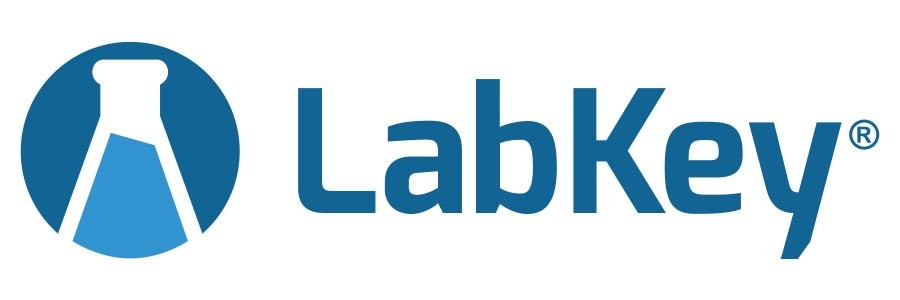LabKey
Surveying great inventors and businesses
Axial: https://linktr.ee/axialxyz
Axial partners with great founders and inventors. We invest in early-stage life sciences companies such as Appia Bio, Seranova Bio, Delix Therapeutics, Simcha Therapeutics, among others often when they are no more than an idea. We are fanatical about helping the rare inventor who is compelled to build their own enduring business. If you or someone you know has a great idea or company in life sciences, Axial would be excited to get to know you and possibly invest in your vision and company. We are excited to be in business with you — email us at info@axialvc.com
In science, the ability to effectively manage and analyze vast amounts of data has become paramount. Born out of the Fred Hutchinson Cancer Research Center in 2003, LabKey has carved a niche for itself by providing data management solutions tailored to the unique needs of researchers, clinicians, and biotech companies.
LabKey's roots can be traced back to the early 2000s, when Professor Martin McIntosh, a researcher at the Fred Hutchinson Cancer Research Center, found himself grappling with a growing deluge of proteomics data. Recognizing the need for specialized tools to manage and analyze this information, McIntosh reached out to his friend, Mark Igra, a former Microsoft employee who had worked on Office Excel and the EndNote reference tool.
Igra, intrigued by the challenge, brought in two of his former Microsoft colleagues, Matthew Bellew and Adam Rauch, who had experience in developing software for data management and analysis. Together, this trio of software engineers began working on a project to create a platform that would allow researchers to query large datasets and share data securely between organizations.
What started as a project within Fred Hutch quickly gained momentum, attracting the attention of other researchers and organizations facing similar challenges. As the demand for their software grew, the team realized the potential for a standalone company dedicated to building data management solutions for the life sciences.
In January 2005, LabKey Software was officially spun out, with Fred Hutch retaining partial ownership. From the outset, LabKey adopted a unique business model: the core LabKey Server platform would be open-source, while the company would earn revenue through consulting services and custom development projects. The founders weren't looking for an opportunity, it was more of a problem that they wanted to help out with.
Unlike many startups that rely heavily on venture capital funding, LabKey chose to bootstrap its growth, reinvesting its revenues back into the company. This approach allowed LabKey to maintain a strong focus on its core mission while retaining control over its direction and decision-making. The 500 research organizations and thousands of individual users that now use LabKey came mainly through word-of-mouth referrals. LabKey's early years were spent refining its platform and building a reputation within the research community. The company's open-source model allowed it to collaborate closely with its users, incorporating feedback and developing new features based on their specific needs.
As the volume of data in medical research continued to grow exponentially, LabKey recognized the need to evolve its offerings. The company began exploring artificial intelligence and natural language processing techniques to help extract insights from unstructured data sources, such as doctors' notes and clinical reports.
While LabKey's initial consulting-based revenue model allowed for rapid iteration and close collaboration with users, it also led to unpredictable cash flows and limited the company's ability to invest in new product development. Under the leadership of CEO Michael Gersch, who joined in 2015, LabKey made a strategic shift towards a more sustainable revenue model. Shifting to a revenue model that has more consistency.
LabKey introduced a tiered subscription service for its premium offerings, while still maintaining its core open-source platform. This move not only provided a more predictable revenue stream but also enabled the company to invest more resources into expanding its product portfolio and staying ahead of the curve in an increasingly competitive market. One of LabKey's strengths lies in its ability to forge strategic partnerships and collaborations with industry leaders and research organizations. These collaborations have not only expanded the reach and impact of LabKey's solutions but have also helped shape the company's product roadmap. The company has partnered with Just Biotherapeutics to create software specifically designed for biotechnology R&D teams. Similarly, the company has worked with Genomics England on a population health project focused on genomics, and with the National Cancer Institute on managing cancer registries using NLP workflows.
As LabKey continues to evolve, one of its primary challenges is transitioning from a platform operator to a product-focused software business. The company is working on developing new offerings, such as a workflow tool to manage samples and specimens, while maintaining and enhancing its core LabKey Server product. Despite this shift, LabKey remains steadfast in its mission to empower researchers, clinicians, and biotech companies with powerful data management solutions. The company's Seattle roots and its close ties to the local biotech community continue to shape its culture and drive its innovation.
LabKey's journey from a small project within the Fred Hutchinson Cancer Research Center to a thriving software company serving clients worldwide is a role model for all startups who want to control their destiny. By bootstrapping its growth and maintaining a laser-focus on its core mission, LabKey has carved out a unique niche in the highly competitive health data management market.
As the life sciences industry continues to generate ever-increasing volumes of data, LabKey's solutions will become increasingly vital, enabling researchers and clinicians to transform vast datasets into actionable insights that can drive breakthroughs in healthcare and biotech. With its strong roots in Seattle's biotech backyard and a proven track record of successful partnerships and collaborations, LabKey is well-positioned to remain at the forefront of this exciting and rapidly evolving field.


